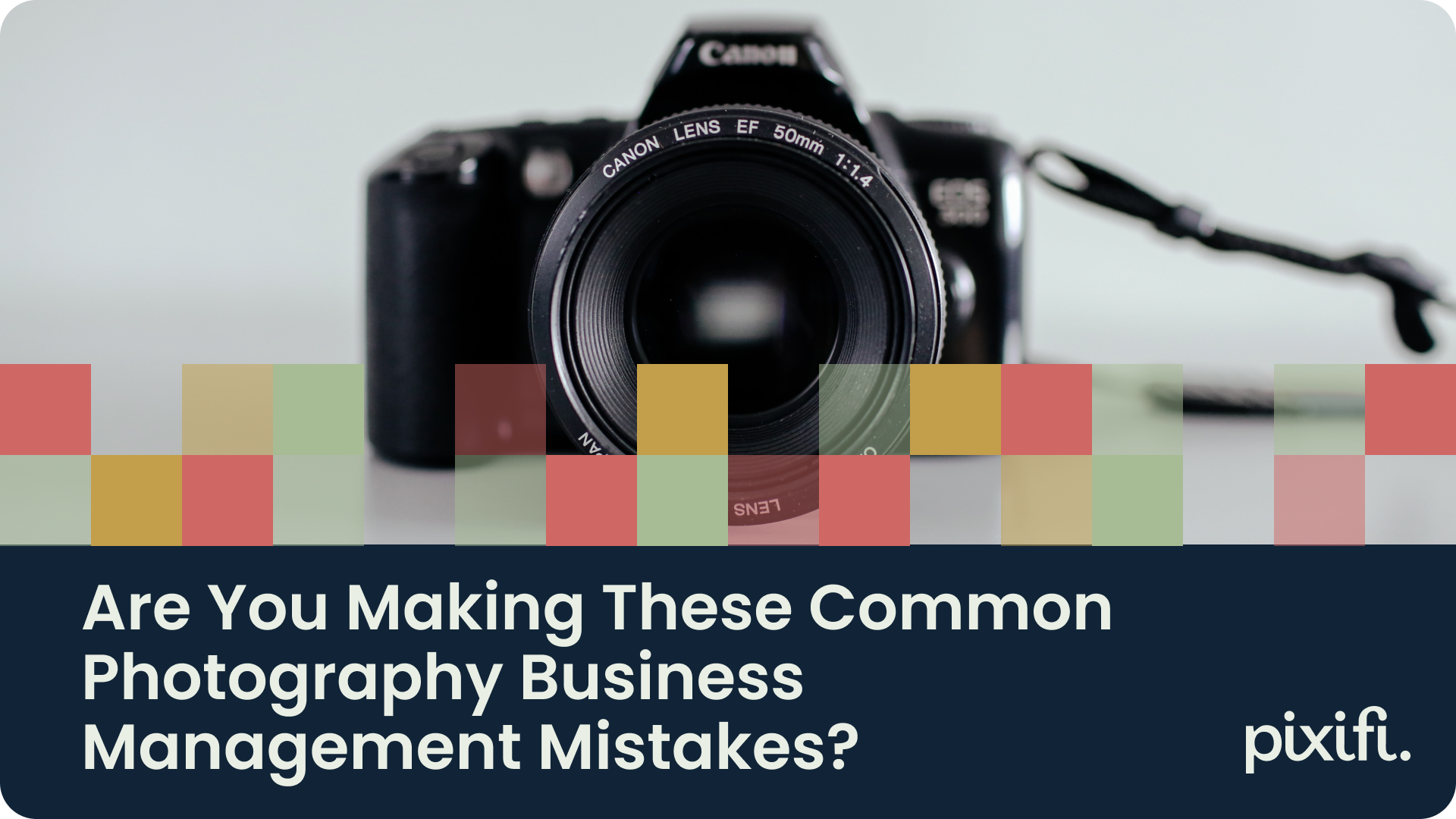The Must-Read Guide to Photography Business Management for Newbies!
Running a photography business requires more than just being able to take great photos. To be successful, you also need to have a good understanding of business management. In this guide, we will explore the basics of photography business management and provide you with key insights and tips to help you navigate the industry with confidence.
Understanding the Basics of Photography Business
Before diving into the intricacies of business management, it is important to grasp the fundamental aspects of running a photography business. Photography is not just about capturing beautiful images; it is also about effectively managing your business to ensure its success.
When starting a photography business, many aspiring photographers underestimate the importance of effective business management. They focus solely on honing their photographic skills, forgetting that running a successful business requires more than technical proficiency. Effective business management ensures that your photography business not only survives but thrives in a highly competitive market.
Importance of Business Management in Photography
Business management plays a crucial role in the success of any photography venture. It involves various aspects such as financial planning, marketing strategies, client management, and efficient workflow processes. By effectively managing these elements, you can create a solid foundation for your photography business.
Financial planning is an essential component of business management. It involves budgeting, tracking expenses, and setting pricing strategies that ensure profitability. Without proper financial management, even the most talented photographers may struggle to sustain their business in the long run.
Marketing strategies are another crucial aspect of business management in photography. It is not enough to take stunning photographs; you need to effectively promote your work and attract clients. This involves creating a strong online presence, utilizing social media platforms, and implementing targeted advertising campaigns.
Key Elements of a Successful Photography Business
Several key elements contribute to the success of a photography business. By focusing on these elements, you can differentiate yourself from the competition and build a sustainable business.
Defining your target market is the first step towards establishing a successful photography business. Understanding the specific needs and preferences of your target audience allows you to tailor your services and marketing efforts accordingly. Whether you specialize in wedding photography, portrait photography, or commercial photography, identifying your target market helps you attract the right clients.
Developing a unique selling proposition is another important element of a successful photography business. With so many photographers in the market, it is crucial to differentiate yourself and offer something unique. This could be your artistic style, specialized techniques, or exceptional customer service. A strong unique selling proposition sets you apart from the competition and attracts clients who resonate with your brand.
Establishing efficient workflow processes is essential for managing the operational side of your photography business. This includes streamlining your editing process, organizing client files, and implementing effective communication systems. By optimizing your workflow, you can deliver high-quality work in a timely manner, ensuring client satisfaction and repeat business.
Building strong relationships with clients and industry professionals is another key element of a successful photography business. Word-of-mouth referrals and positive reviews can significantly contribute to the growth of your business. By providing exceptional customer service and fostering genuine connections, you can create a loyal client base and gain credibility within the industry.
In conclusion, running a successful photography business requires more than just technical proficiency. Effective business management plays a crucial role in ensuring the longevity and growth of your venture. By understanding the importance of business management and focusing on key elements such as financial planning, marketing strategies, defining your target market, developing a unique selling proposition, establishing efficient workflow processes, and building strong relationships, you can create a thriving photography business in today's competitive market.
Setting Up Your Photography Business
Once you have a solid understanding of the basics, it's time to set up your photography business. This section will guide you through the essential steps to get your business off the ground.
Setting up a photography business is an exciting endeavor that allows you to turn your passion into a profession. It offers the opportunity to showcase your creativity, capture beautiful moments, and provide valuable services to clients. However, before diving into the world of entrepreneurship, there are several important factors to consider.
Choosing Your Photography Niche
Identifying your photography niche is crucial to positioning yourself in the market. By specializing in a specific area such as weddings, portraits, or commercial photography, you can target a more defined audience and establish yourself as an expert in that field.
When choosing your niche, consider your interests, skills, and the market demand. Conduct market research to identify the needs and preferences of potential clients. This will help you determine which niche aligns best with your expertise and the market opportunities available.
Once you have chosen your niche, it's important to develop a unique selling proposition (USP) that sets you apart from competitors. Your USP could be your distinctive style, exceptional customer service, or specialized equipment. Highlighting your USP in your marketing materials will attract clients who resonate with your unique offering.
Creating a Business Plan
A well-crafted business plan is essential for any successful venture. It acts as a roadmap, outlining your business goals, target market, marketing strategies, financial projections, and more. Take the time to create a comprehensive business plan that will serve as a guide for your photography business.
Start by defining your business objectives. What do you want to achieve with your photography business? Set specific, measurable, achievable, relevant, and time-bound (SMART) goals that will guide your actions and measure your success.
Next, conduct a thorough analysis of your target market. Identify your ideal clients, their demographics, and their needs. This will help you tailor your marketing efforts and services to attract and retain your target audience.
Develop a marketing plan that outlines the strategies and tactics you will use to promote your photography business. This may include creating a professional website, utilizing social media platforms, attending industry events, and collaborating with other professionals in related fields.
Financial planning is also a crucial aspect of your business plan. Determine your startup costs, ongoing expenses, and projected revenue. This will help you set your pricing structure, allocate resources effectively, and ensure the financial sustainability of your business.
Legal Considerations for Photography Businesses
Before starting your photography business, it's crucial to familiarize yourself with the legal requirements and regulations that apply to your industry. This includes obtaining any necessary permits or licenses, understanding copyright laws, and protecting your intellectual property.
Consult with a legal professional or business advisor to ensure that you comply with all applicable laws and regulations. They can guide you through the process of obtaining the required permits and licenses, drafting contracts, and protecting your work from unauthorized use.
Additionally, consider investing in liability insurance to protect yourself and your business from potential claims or damages. This will provide you with peace of mind and financial security in case of unforeseen circumstances.
Remember, setting up a photography business is not just about taking stunning photos. It requires careful planning, strategic decision-making, and compliance with legal obligations. By following these steps, you will be well-prepared to embark on your entrepreneurial journey and build a successful photography business.
Managing Your Photography Business Finances
Managing your finances effectively is vital to sustain and grow your photography business. This section will provide you with valuable insights on how to handle the financial aspect of your business.
Pricing Your Photography Services
Determining the right pricing structure for your photography services can be challenging. Consider factors such as your experience, overhead costs, market demand, and perceived value to set competitive yet profitable prices for your services.
Budgeting and Financial Planning
Creating a budget and financial plan will help you keep track of your income and expenses. By assessing your financial situation regularly, you can make informed decisions and allocate resources effectively to support your growth objectives.
Understanding Taxes for Photographers
Taxes can be complex, but understanding the tax obligations specific to photographers is crucial. Familiarize yourself with the tax laws and regulations that apply to your business, such as sales tax, income tax, and deductions for business expenses. Consider consulting with a tax professional to ensure compliance.
Marketing Your Photography Business
Marketing plays a pivotal role in attracting clients and growing your photography business. This section will explore effective marketing strategies that will help you stand out from your competitors.
Building a Strong Brand Identity
Developing a strong brand identity is essential for building credibility and recognition. Consistently portray your brand values, vision, and style through your website, social media presence, and overall marketing materials. Establishing a unique brand identity will make your photography business more memorable.
Effective Marketing Strategies for Photographers
Explore various marketing strategies to promote your photography business. This may include online marketing, traditional advertising, collaborations with local businesses or influencers, and participating in industry events or competitions. Tailor your marketing efforts to reach your target audience and showcase your unique strengths as a photographer.
Utilizing Social Media for Business Growth
Social media platforms offer valuable opportunities to showcase your work, engage with your target audience, and attract potential clients. Create a strong social media presence by consistently sharing high-quality images, behind-the-scenes content, and engaging with your followers. This will help you establish meaningful connections and generate leads for your photography business.
By combining your passion for photography with effective business management techniques, you can elevate your photography business to new heights. Remember that success in the industry requires not only talent but also a solid foundation in business management. Use the insights and tips provided in this guide to navigate the world of photography business management and pave the way for a successful and fulfilling career.
Looking for an easier way to manage and grow your studio? Experience a platform built by a photographer, for photographers. Try it free for 2 weeks.











